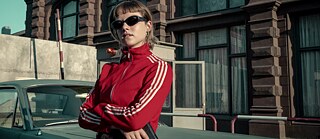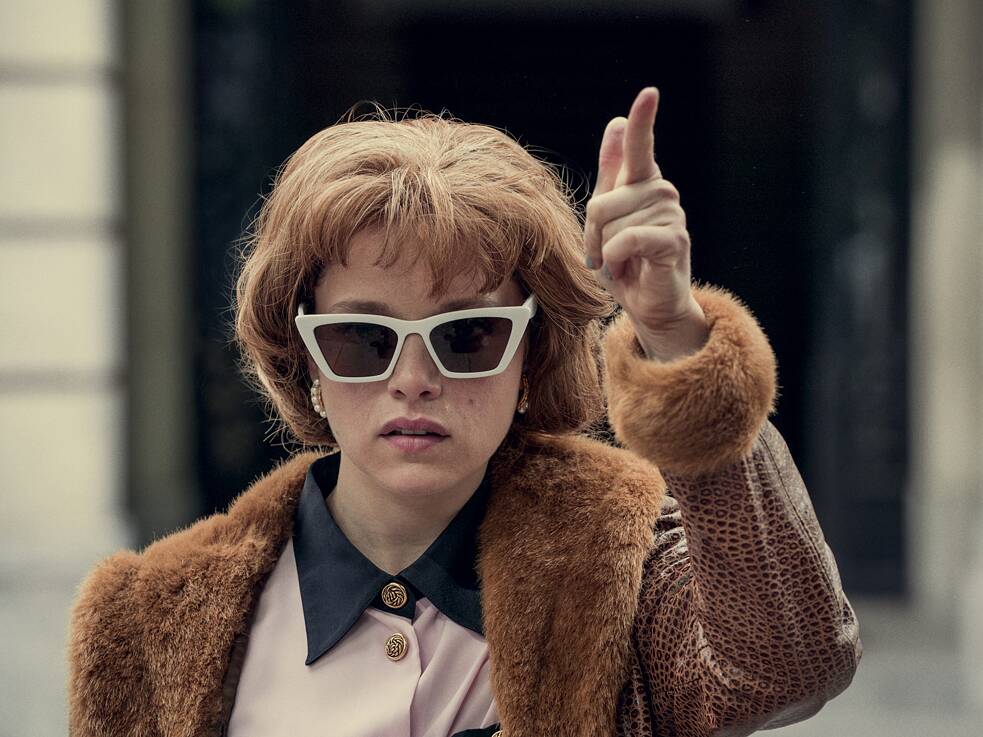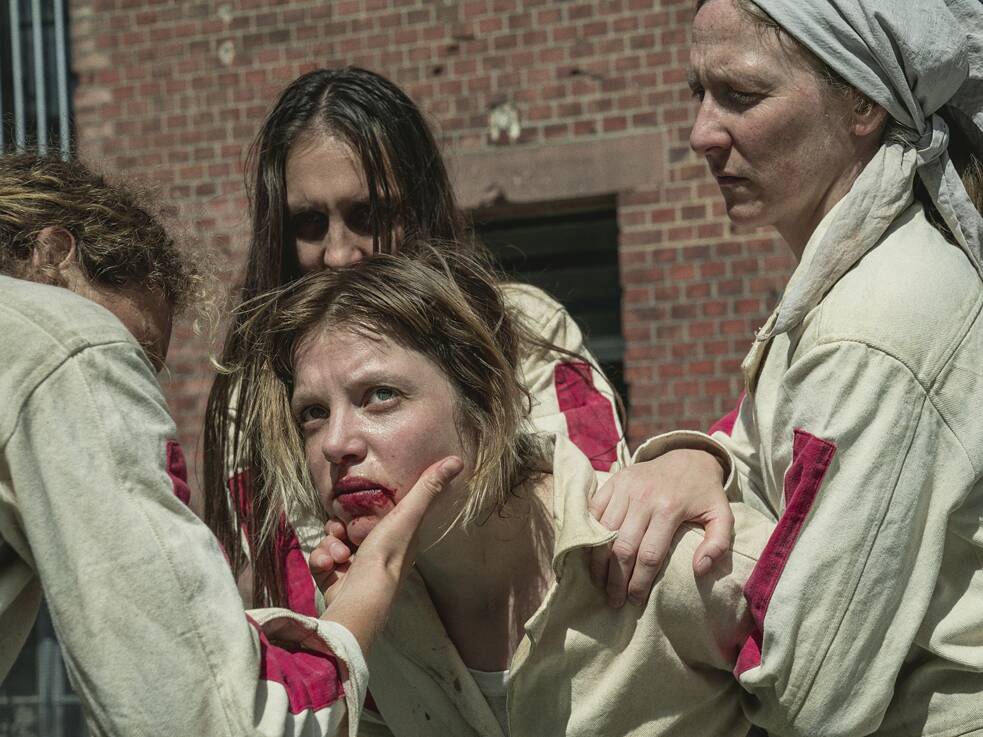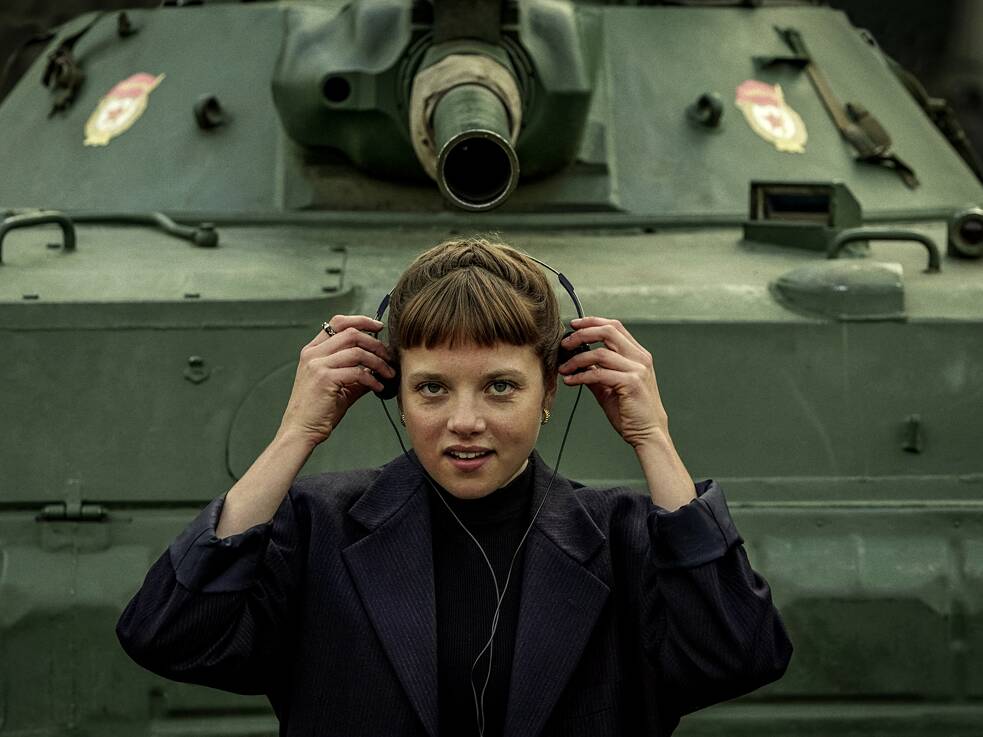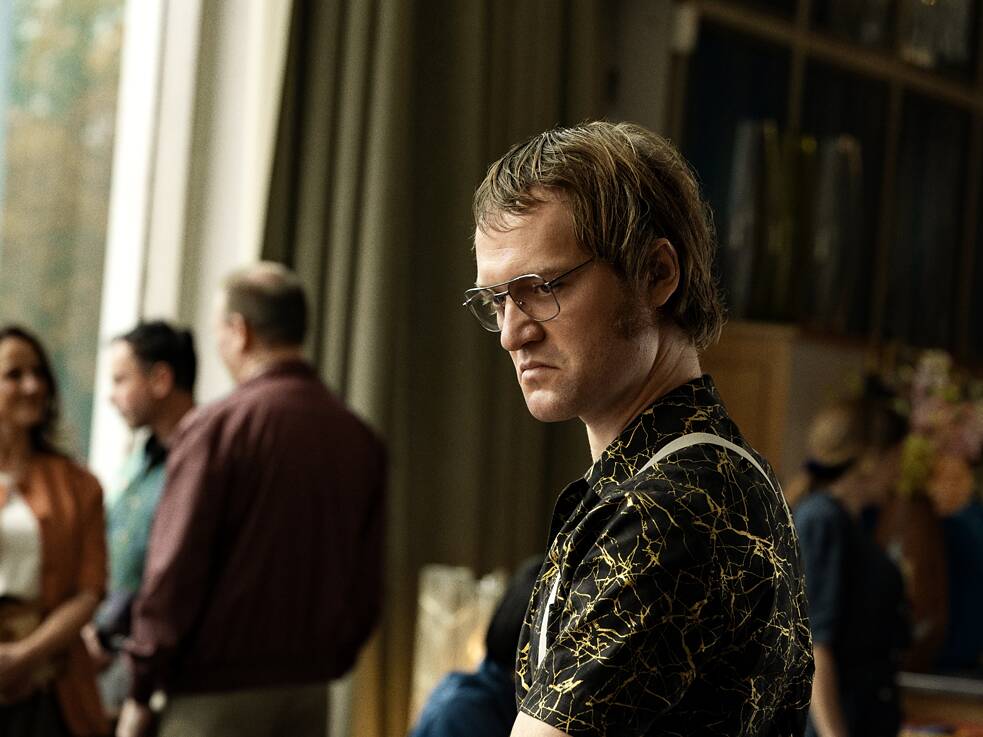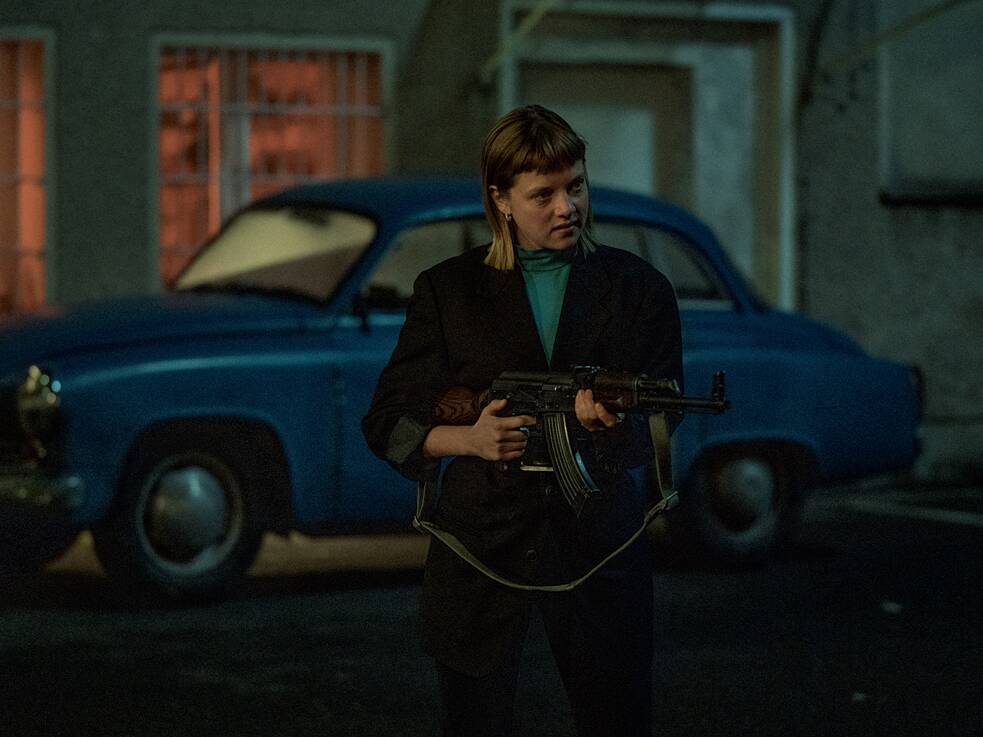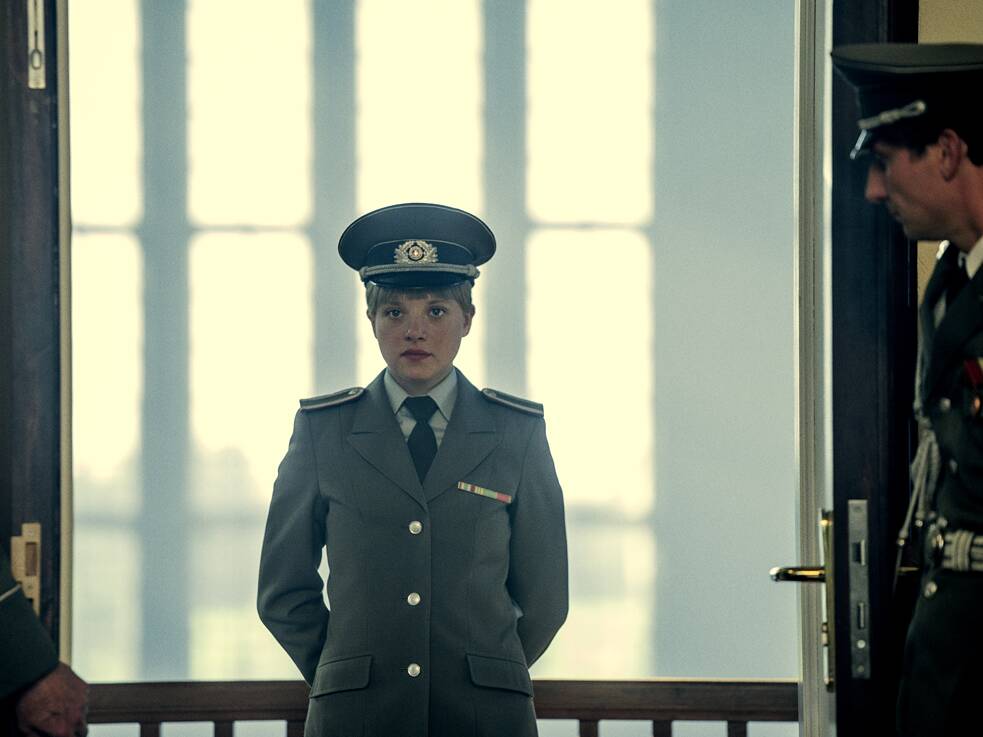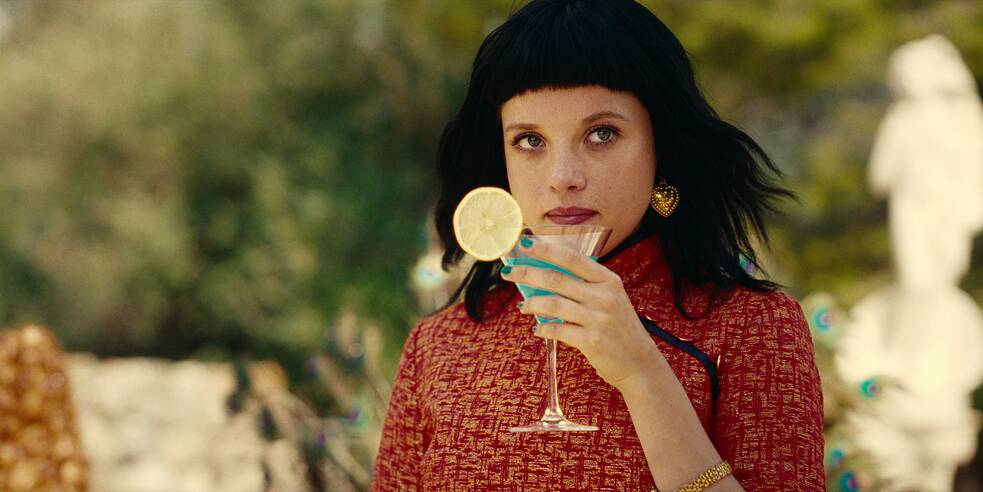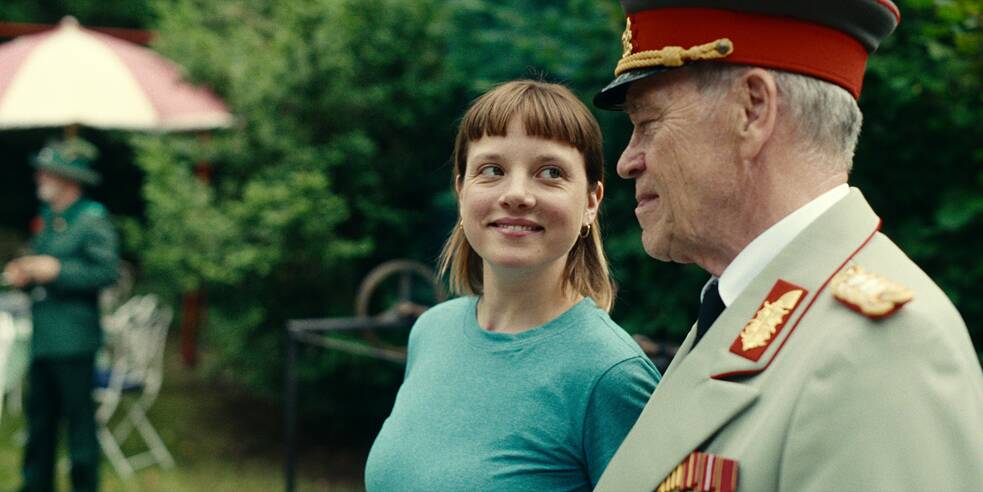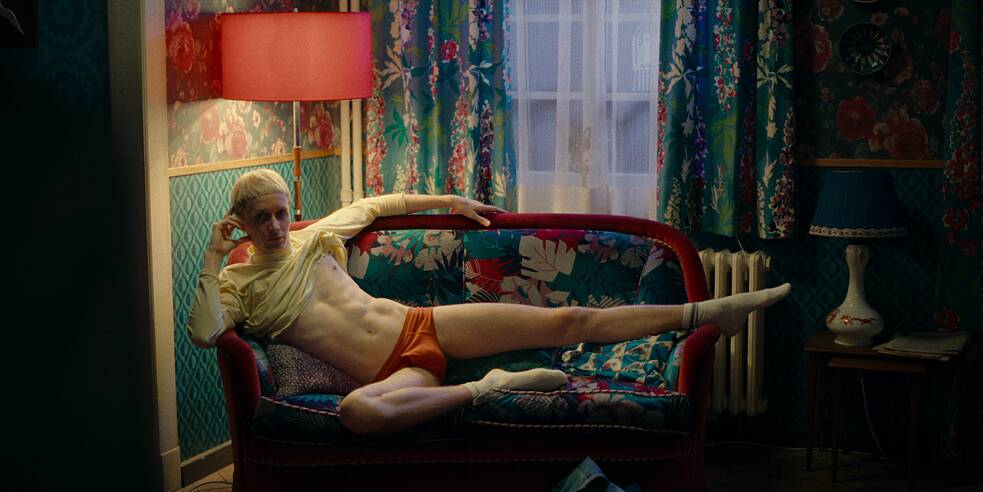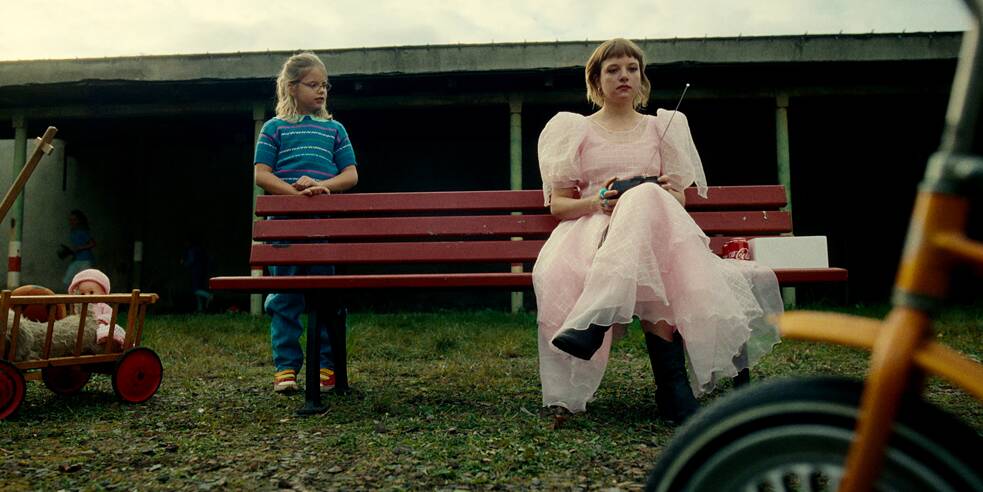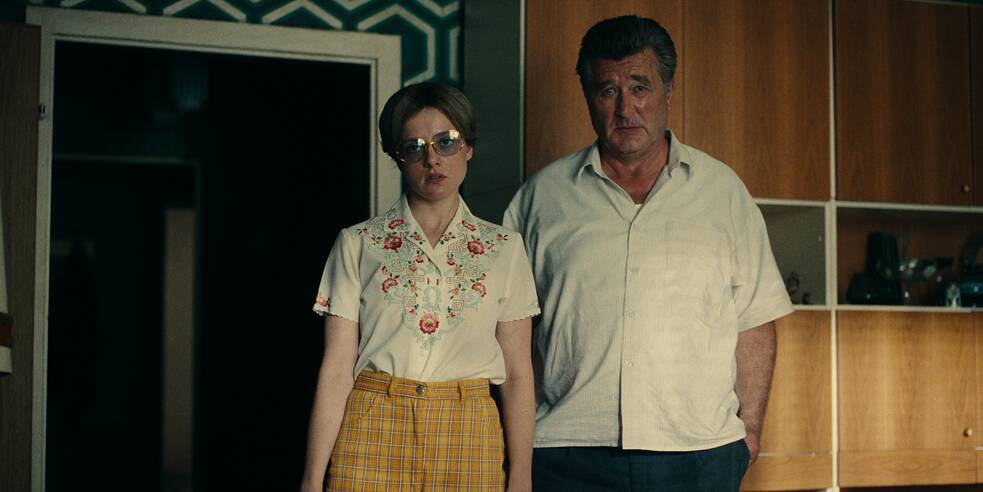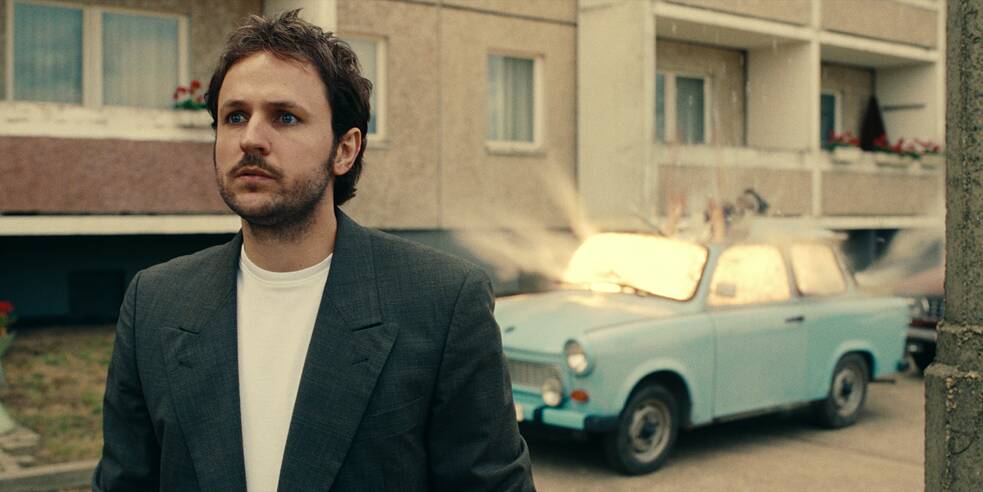The Netflix thriller Kleo opens in 1987, when the young Stasi assassin Kleo (Jella Haase) sneaks into West Berlin and poisons a high-ranking Western official, only to be mysteriously betrayed and jailed by her handlers once she’s back in East Berlin. With this setup, Kleo situates a classic Revenge-o-matic premise, to borrow Quentin Tarantino’s piquant phrase, in an exceptionally dramatic historical moment.
Coal-powered blonde
When Kleo is released from prison as part of a general amnesty in 1990, she finds that the Stasi, like East Germany in general, is a sinking ship, but that hardly stops her from going on a rampage against her former bosses. As Kleo works to uncover the conspiracy that ruined her life, she becomes awkward partners with West Berlin police detective Sven (Dimitrij Schaad), and awkward friends with Thilo (Julius Feldmeier), a new arrival in Berlin with utopian ideas about the city’s burgeoning club culture.For much of the eight-episode season, the show makes narrative hay out of its setting, with the optimistic vibe of the newly reunited Berlin contrasting with Kleo’s murderous unfinished business in the East. Part of the show’s appeal is the Ostalgie production design: East Berlin’s Café International, the Stasi HQ, the Plattenbauen that ring the city, and of course the always welcome appearance of the Trabant. The eyesore aesthetics of the Eastern Bloc that once came across as oppressively drab now look weirdly exotic, ready for their Instagram moment.Vorsicht! Klassenfeind!
The Berlin of 1990 is an intriguing study in contrasts, between the disillusionment and curdled cynicism of the newly cashiered Cold Warriors and the blithe optimism of the dance-scene vanguard. The last few remaining socialist true believers we meet are either suicidal or homicidal, as in the case of mad-dog assassin and Puhdys fan Uwe (Vincent Redetzki). Meanwhile many of the ‘Wessis’ we encounter, swaddled in oversized ‘80s fashions and smiling too much, exude unconscious entitlement. On one hand, there’s Kleo with her newfound, hard-won “There’s no ‘we’ anymore” outlook. And then there’s Thilo, who never sounds more like an interloper from the West than when he glibly proclaims, “You’ve got to destroy to build the new,” as if destruction won’t inevitably result in casualties. Is Thilo a visionary, a drug-addled Wessi dolt, or a bit of both?It’s somewhat disappointing that the series ultimately doesn’t find a way to meaningfully integrate Thilo’s hedonistic misadventures with Kleo’s story. Similarly, the show is less involving when the camera turns to Sven, Kleo’s hapless comic sidekick. Despite actor Dimitrij Schaad’s hangdog charisma, the police procedural starring Sven plays like a throwback to an antiquated type of cop show that streaming was supposed to leave in the dust. As grim as Kleo’s storyline occasionally is, the show is enlivened by a streak of sly humor. East Germany’s Stasi spy agency is best known in pop culture through the 2006 Oscar winner The Lives of Others. Kleo’s take on the same subject suggests that history repeats itself: first comes the somber arthouse movie, then the irreverent pulp fiction. The mordant mischief here includes an attempted murder by Bundt cake (delivered by a pigtailed Free German Youth member), and a toy souvenir of East Berlin’s TV tower used as a lethal weapon. Meanwhile the post-prison Kleo’s haircut and overall styling are surely meant to suggest a young Angela Merkel.
Frau of a thousand faces
All the show’s dramatic momentum come from Kleo, and Haase’s performance. For the show to work, the audience has to believe Kleo is the victim of a cadre of aging ideologues. While it’s hard to believe Haase is now 30, the flipside of her indomitable-brat persona is that she’s entirely credible as a wounded innocent. Witness Episode 3, where Kleo goes undercover as a spoiled Wessi heiress in Mallorca to track down and exact a literally explosive revenge on her old Stasi boss, who has now gone full, lip-smacking capitalist. The episode plays like a through-the-looking-glass version of Alias, with Kleo as the siren-assassin that Sydney Bristow only pretended to be.The high point of the season comes with the flashbacks that open Episode 6. As Kleo lies in a coma, she recalls her past in a stylized, swirling set of vignettes that leap past realism for staging more evocative of a musical. Only here the mood is oppressive, almost suffocating, as we see how the political indoctrination and rigid militarization of Kleo’s upbringing produced an assassin almost robotically willing to kill at the state’s command. The Stasi’s ideal citizen, in other words. It’s a shame Kleo loses its way after that, as the story builds up to the reveal of its outlandish MacGuffin. The big twist wouldn’t feel like a letdown if the show’s tone didn’t grow increasingly wobbly. The first half of the season treats Kleo’s betrayal and disillusionment seriously, but by the last couple episodes the characters are all but winking at the camera. The show’s sly wit devolves into broad schtick. Did a cigar-chomping executive issue a memo late in production decreeing, “You need to lighten this up, now!” Or did the creators themselves flinch from the themes inherent in this milieu? God forbid an audience in 2022 would come away thinking something was at stake in East Germany’s lurch from socialism to capitalism.
The nadir comes with a late-season detour to Chile that plays like the writers were chasing after the macabre wackiness of Killing Eve, or the fondly remembered ‘80s action movies of someone’s youth. Kleo and Sven’s South American adventures might have been better saved for a second season, if not scrapped entirely. The Berlin of 1990, awash in techno beats and pilfered Soviet weaponry, is all the material Kleo needs.
Will Season Two find Kleo selling chunks of the Berlin Wall to tourists at Potsdamer Platz? Working a desk job at the Treuhand? We have to wait until July 25th 2024, the scheduled start of the second season on Netflix, to find out.
“Kleo”
Showrunner, writers & concept: HaRiBo (Hanno Hackfort, Richard Kropf, Bob Konrad)
Additional writer: Elena Senft (Episodes 4&5)
Executive Producer: Michael Souvignier and Till Derenbach
Directors: Viviane Andereggen (episodes 1-3 & 8) and Jano Ben Chaabane (4-7)
Camera: Martin Langer and Tobias Koppe
Cast: Jella Haase, Dimitrij Schaad, Vladimir Burlakov, Thandi Sebe, Marta Sroka, Julius Feldmeier and Jürgen Heinrich
Production: Zeitsprung Pictures for Netflix
